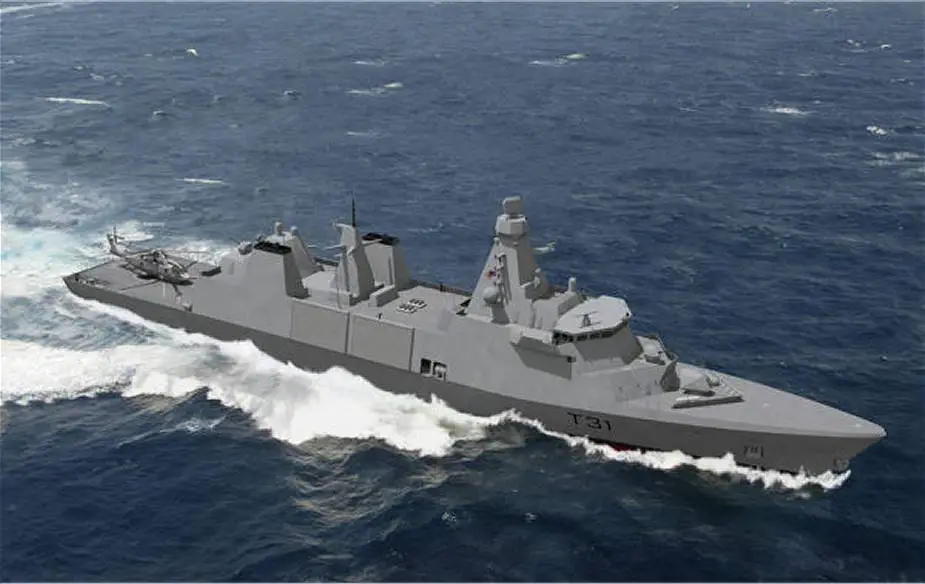Breaking news
British Navy plans to introduce five Type 32 frigates.
According to a report published by the UK’s House of Commons Defense Committee on December 7, 2021, the British Royal Navy is planning to introduce five Type 32 frigates, which would increase the escort fleet (frigates and destroyers) from 19 to 24.
Follow Navy Recognition on Google News at this link
 British company Babcock has announced that the Type 32 frigate will be based on the design of Type 31. (Picture source Babcock)
British company Babcock has announced that the Type 32 frigate will be based on the design of Type 31. (Picture source Babcock)
The Type 32 is a frigate currently in development in the United Kingdom for the Royal Navy. Admiral Radakin described the British Navy’s current thinking on the project, confirming that the vessel will be a general-purpose frigate whose purpose would be to increase the overall number of vessels in the fleet, rather than fill a specific capability gap.
In November 2020, British Prime Minister Boris Johnson announced the first outcome of the defence review by pledging increased funding in the range of £16.5 billion over four years to stabilise the defense budget and to provide new funding for space, cyber and research activities. A plan to construct a new class of frigate, the Type 32 frigate, was also announced with five vessels envisaged and likely entering service starting in the early 2030s.
In March 2021, the British government's defense command paper, Defense in a Competitive Age, elaborated further on the Type 32 frigate stating that it would be designed to protect territorial waters, to provide persistent presence and to support the Royal Navy's new Littoral Response Groups (LRGs).
During the DSEI, British defense exhibition in September 2021, British company Babcock International revealed it was pitching its Arrowhead 140 design, used by the Type 31 frigate, as the base design for the Type 32.
According to information from the UK’s Minister for Defense Procurement Jeremy Quin, the new Type 32 frigate will be a platform for autonomous systems, adding to the British Navy’s capabilities for missions such as anti-submarine warfare and mine countermeasures.
Citing British navy military experts, the Type 32 will offer an ability to host MMCM modules in addition to supporting littoral operations by the Royal Marines. Initiated in 2012 under a cooperation agreement between France and the United Kingdom, the MMCM program develops a prototype autonomous system for detection and neutralization of sea mines and underwater improvised explosive devices (UWIEDs).
The MMCM contract includes three stages, starting with a first phase for design. The next stages, which are subject to contract options, will manufacture and experiment the future mine countermeasures capabilities of both France (SLAM-F future mine countermeasures system) and the United Kingdom (MHC – Mine countermeasures and Hydrography Capability). The program will deliver an autonomous, remotely operated mine countermeasures solution.


























